QuestionMy cat is almost 18 years old. In the last year, she has started what we would call bellowing...At first, it was only occasionally and when she went down to the basement or another room alone..I asked the vet about it. He said sometimes when they get older, they get separation anxiety, they have fear, etc...But recently, it has been going quite regularly, mostly in the middle of the night! She has fresh water and food daily, I make sure her box is clean. She is a healthy cat and gets her shots regularly, etc. Please give me some advice on this!! We cannot continue to lose sleep every night..Thanks...
AnswerHi Amy,
I did some research and found this article for you. It is pretty thorough and concise. I hope this helps you. Good luck.
Ciao, Karen
Night-time yowling is a very common problem in older cats. Like many
symptoms, it has multiple causes. Many older cats have more than one of the
listed problems, so it is important to carefully consider the possibility
of all of them in an affected cat.
Hyperthyroidism is the most commonly reported inducer of this behavior and
is also the most likely medical cause in a cat that is on the young side
when the behavior occurs. This is relatively easy to test for but it can
take more than one test, in some instances, to confirm the diagnosis.
Usually cats with hyperthyroidism have increased activity levels and are
eating more but not gaining weight.
Hypertension (high blood pressure), normally associated with kidney
failure, can cause night time yowling. Or at least treatment for
hypertension sometimes decreases night time yowling --- it is hard to be
sure that the medication doesn't have a beneficial effect separate from the
lowering of blood pressure unless accurate blood pressure monitoring is done.
Cats appear to be affected by decreases in their ability to see and to hear
in a manner that induces yowling at night. There is a theory that this
produces anxiety and that yowling is the result. Some cats do respond to
anti-anxiety medications such as diazepam (Valium Rx) or amitriptyline
(Elavil Rx).
Cats also seem to get cognitive disorders similar to those experienced by
dogs and humans, in which confusion, loss of orientation and other signs of
decreased mental ability occur. This may lead to night time yowling, as
well. The currently recommended treatment for this is to try selegiline
(Anipryl RX). This medication isn't approved for cats (but then neither are
diazepam or amitriptyline) and there is less proof that a condition
responsive to it exists in cats than there is in dogs.
Sometimes simple things like giving an antihistamine at night, deliberately
keeping the cat up and active in the early evening and making sure food and
water are easily available at night will help.
I have heard that older people sometimes experience difficulty sleeping at
night that doesn't seem to be related to other problems. I think this might
also occur in cats. It seems possible that this is sometimes just a
complaint about not being able to sleep or a cat looking for a little
comfort when it is bored at night and can't sleep. If this is the case I
don't know what to suggest except maybe adopting a nocturnal pet to keep
the cat company. Of course, that has lots of potential problems as a
suggestion, too!
Ruling out hyperthyroidism and hypertension seem like the best first steps,
to me. Hope this helps some.
Mike Richards, DVM

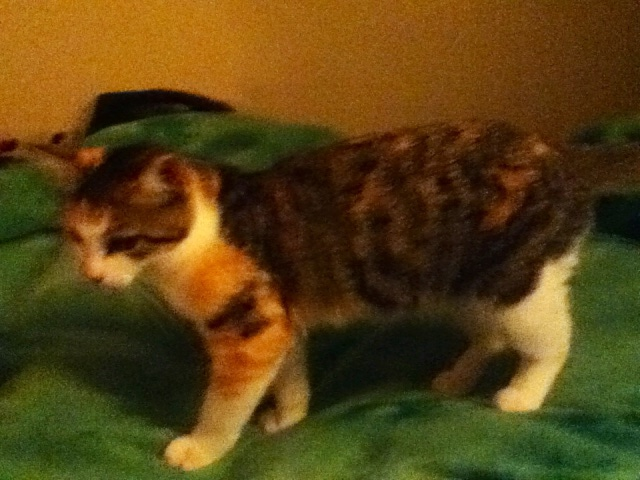 Short Tailed Manx Kitten
Question
Una Mica Una Mica
Hello,
I go
Short Tailed Manx Kitten
Question
Una Mica Una Mica
Hello,
I go
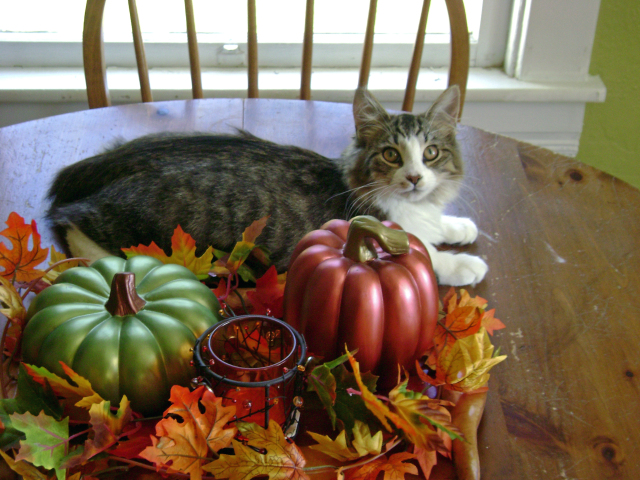 The breed of my 5 1/2 month old kitten
Question
Edmund 5 1/2 months ol
Hi, my husband and I re
The breed of my 5 1/2 month old kitten
Question
Edmund 5 1/2 months ol
Hi, my husband and I re
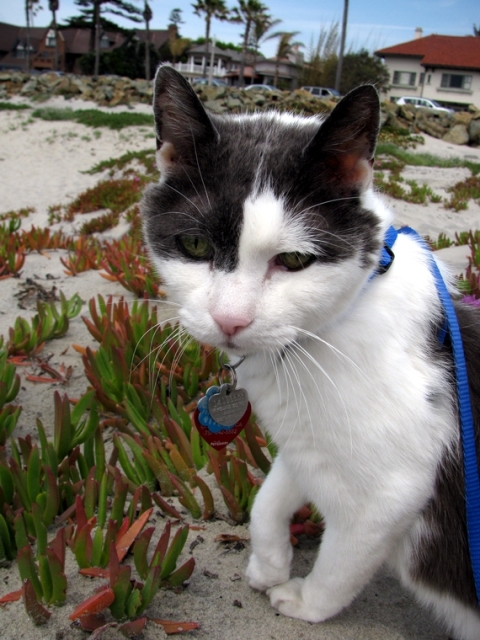 18 year old cat has blood clots in urine
Question
Tucker
My 18 year old male neutered cat is hyp
18 year old cat has blood clots in urine
Question
Tucker
My 18 year old male neutered cat is hyp
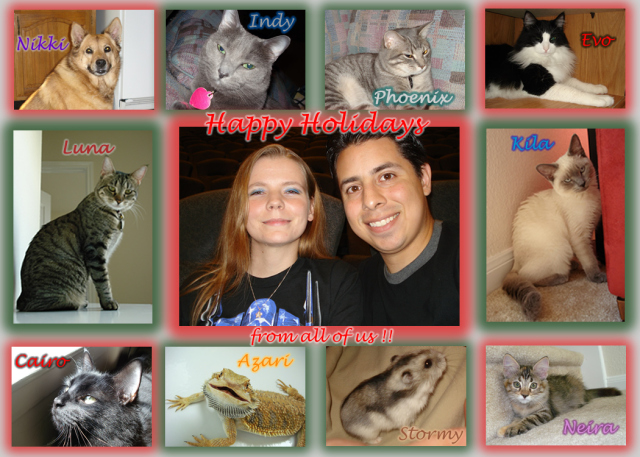 Treating cat dominance/aggression with prozac
QuestionI adopted a 3-year old male from the shelter th
Treating cat dominance/aggression with prozac
QuestionI adopted a 3-year old male from the shelter th
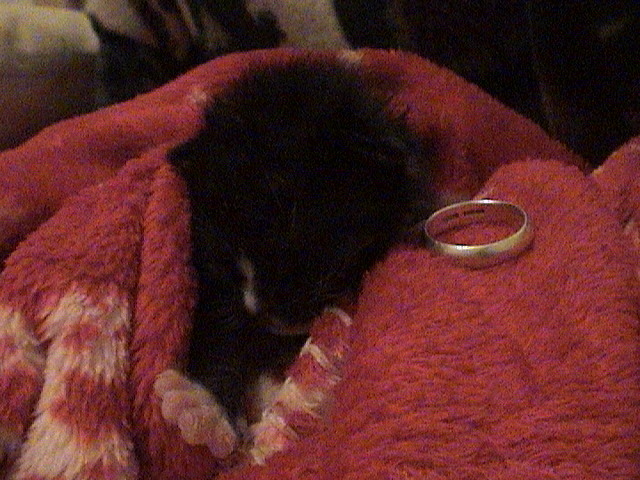 Orphaned Kitten
QuestionQUESTION: My partner and l are very much animal
Orphaned Kitten
QuestionQUESTION: My partner and l are very much animal